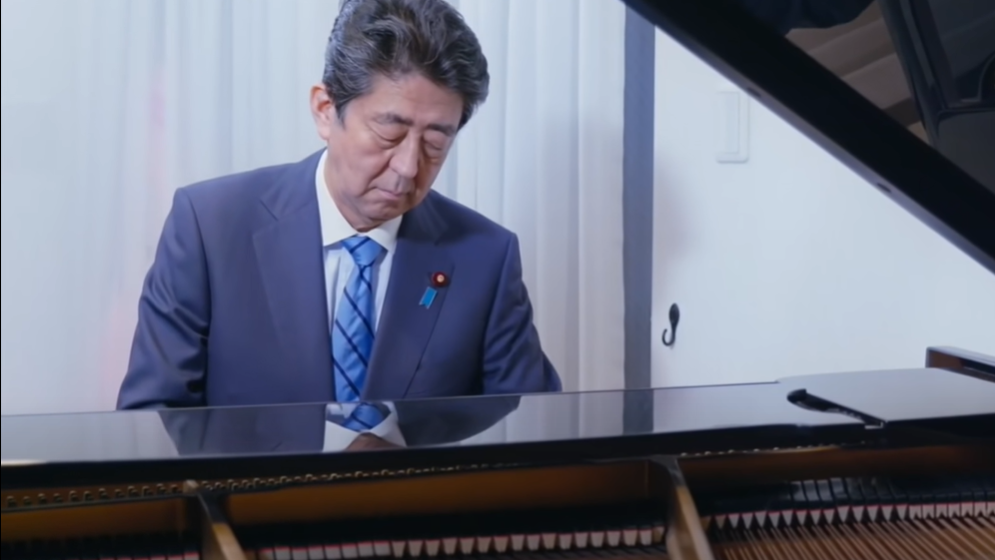
A rare occasion of Shinzo playing the piano
Japanese former Prime Minister Shinzo Abe played the piano as a teaser to Japan Spirit Concert 2021. The piece he played, Hana wo Saku, pays tribute to those lost in the 2011 Tohoku Earthquake.

Japanese former Prime Minister Shinzo Abe played the piano as a teaser to Japan Spirit Concert 2021. The piece he played, Hana wo Saku, pays tribute to those lost in the 2011 Tohoku Earthquake.
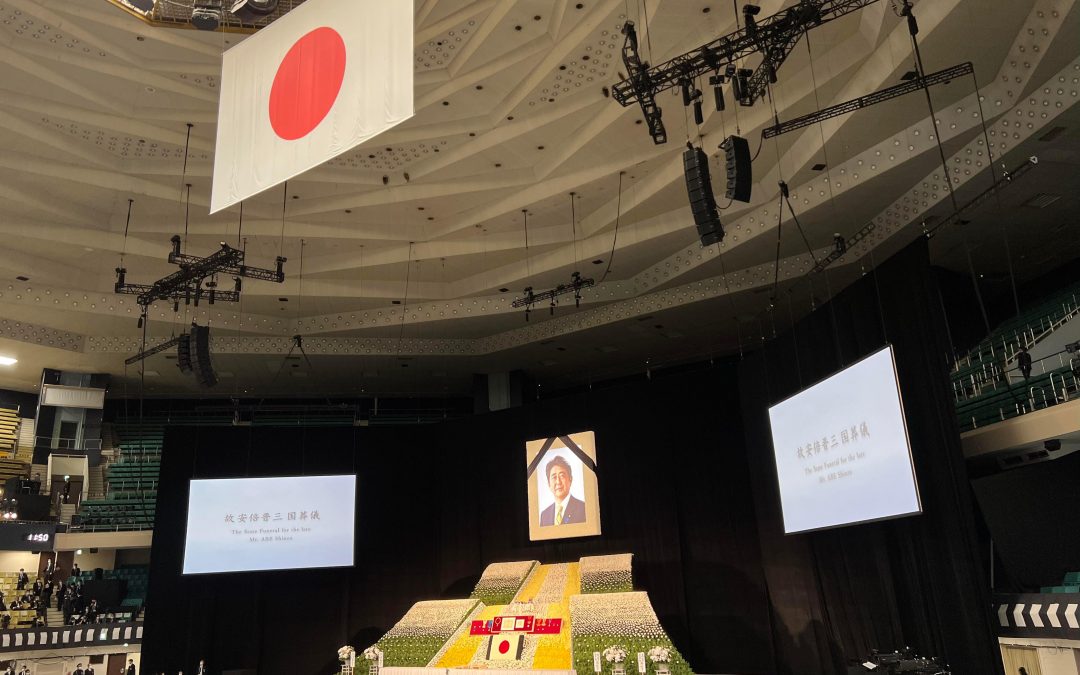
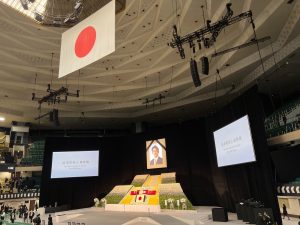
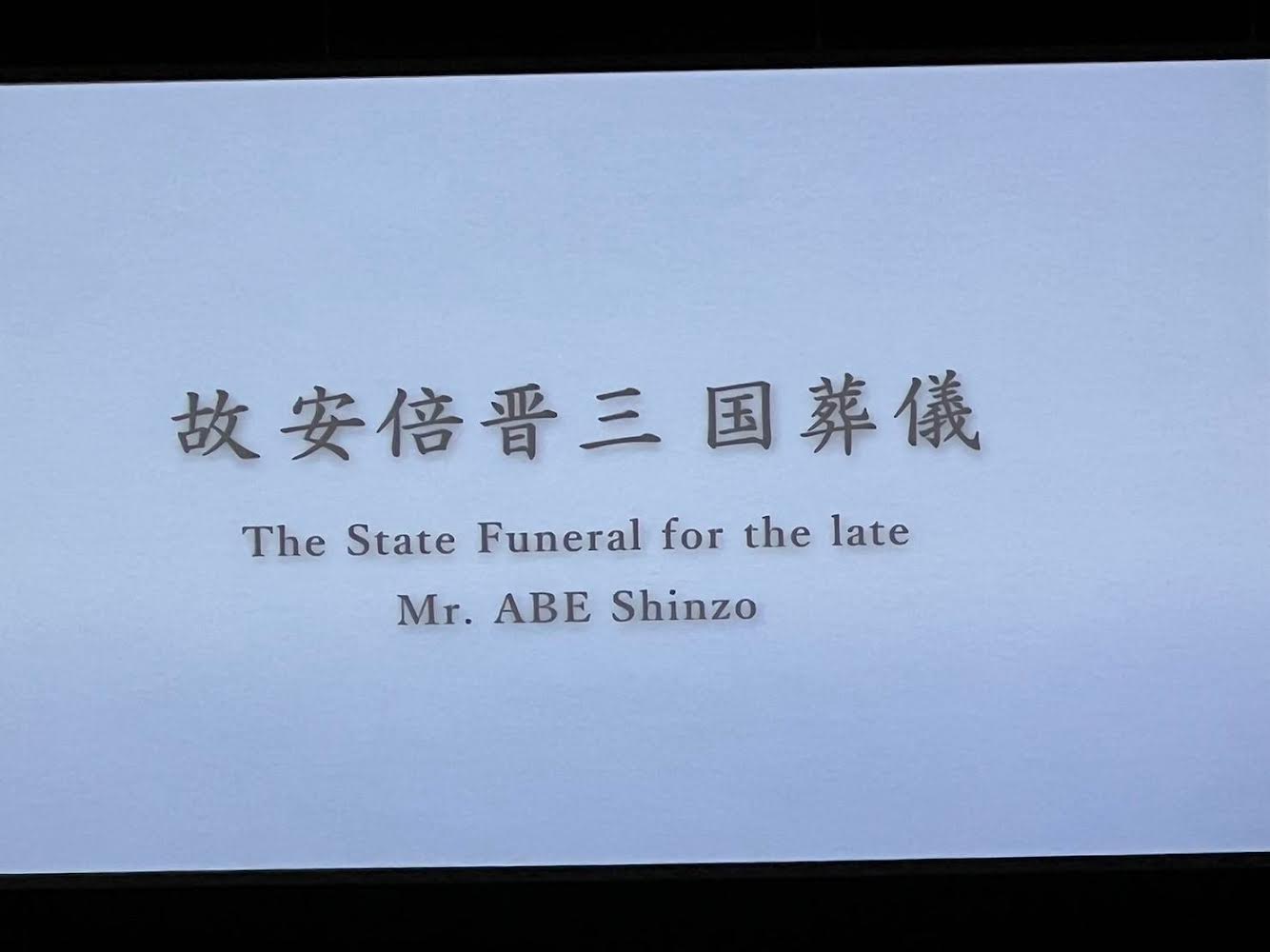
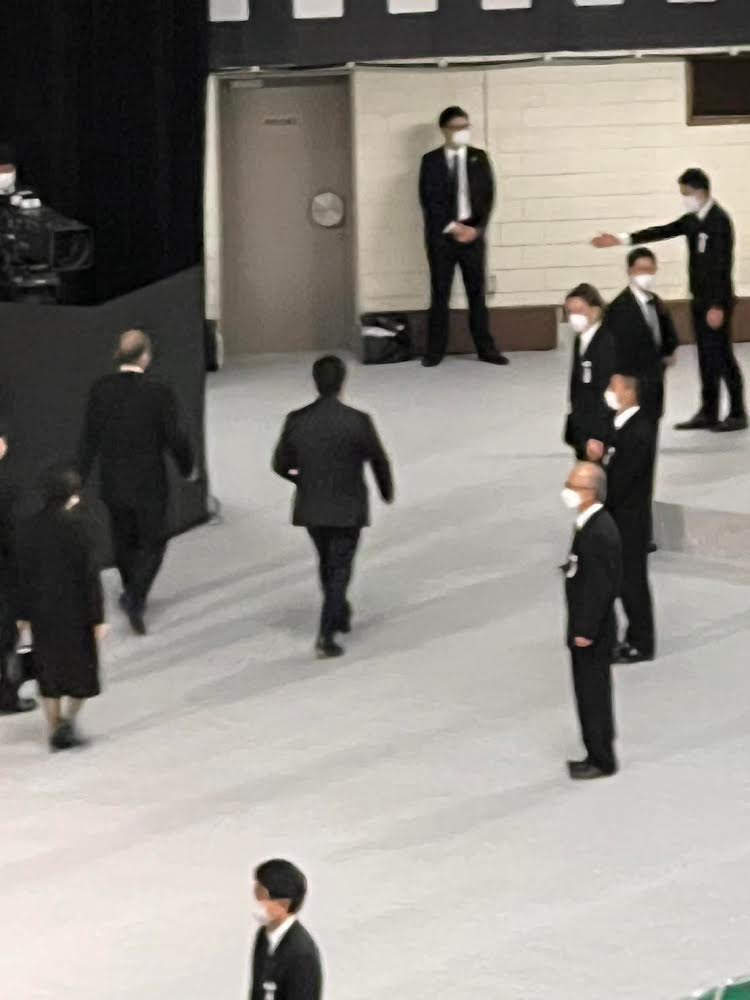
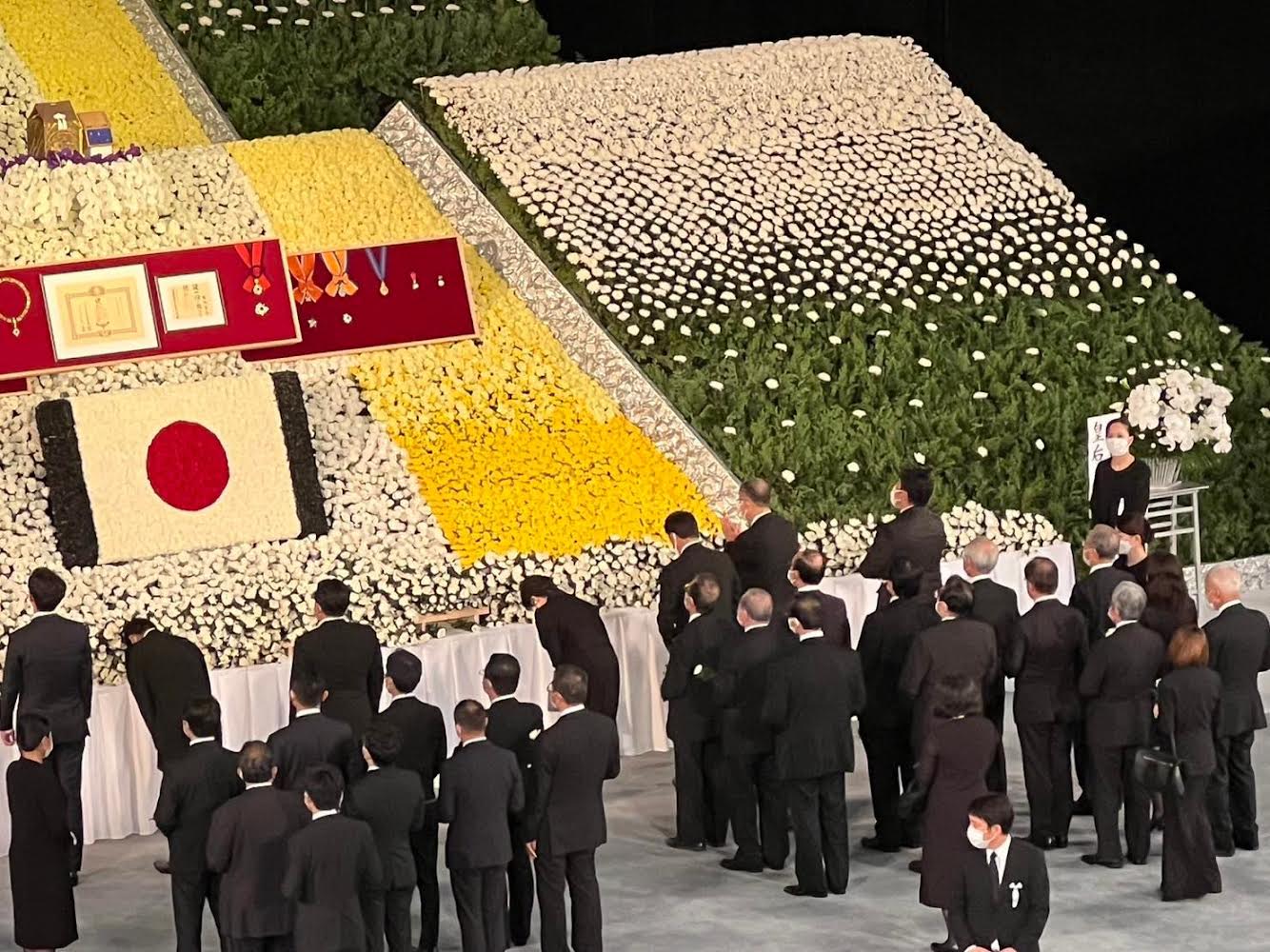
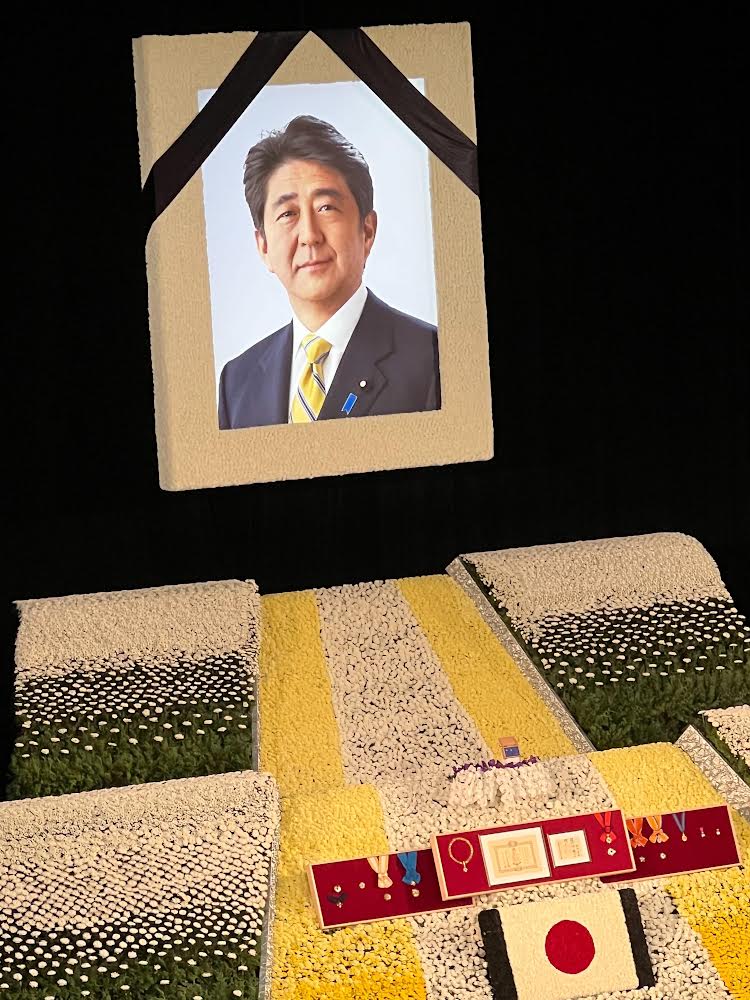
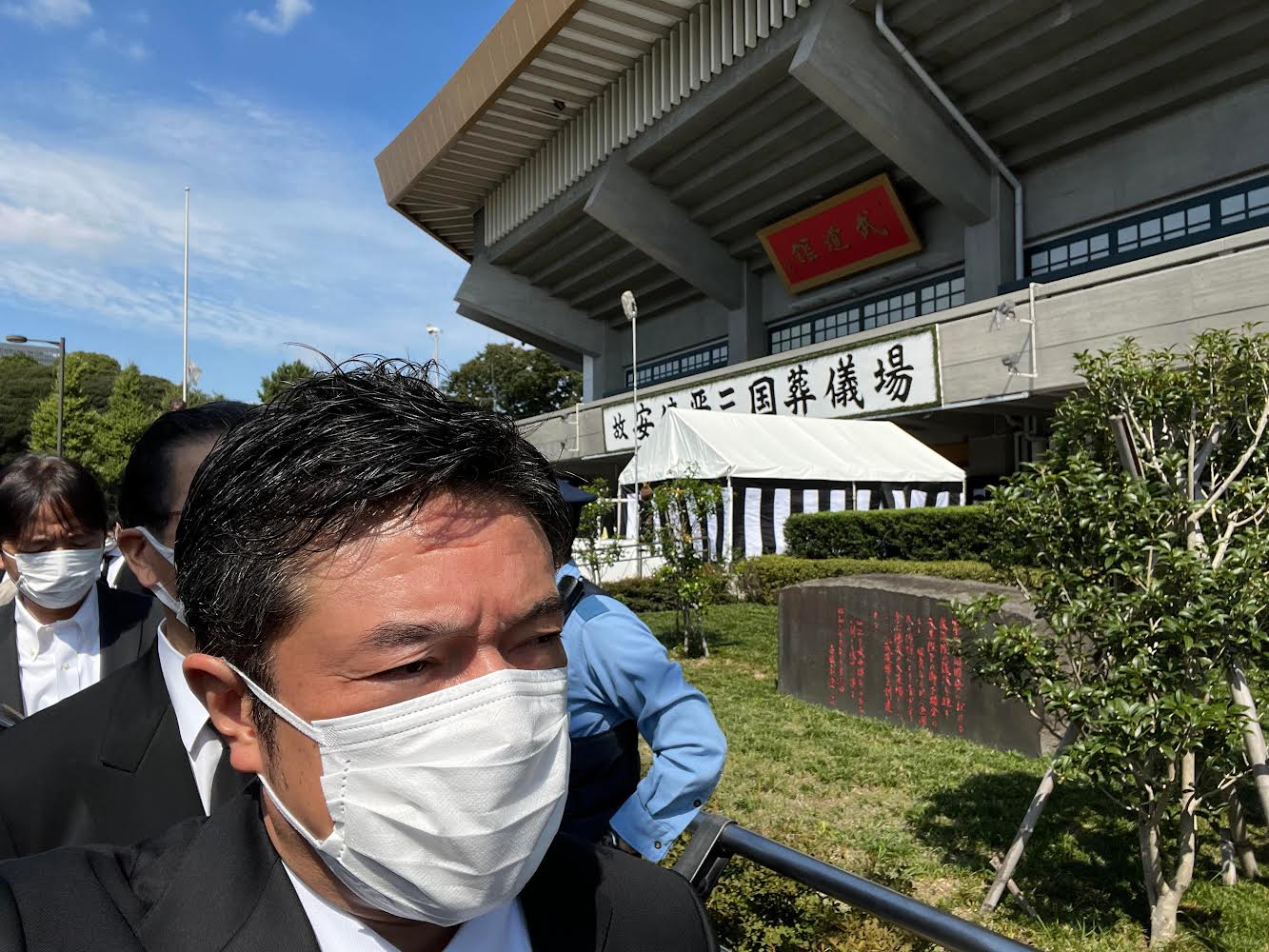
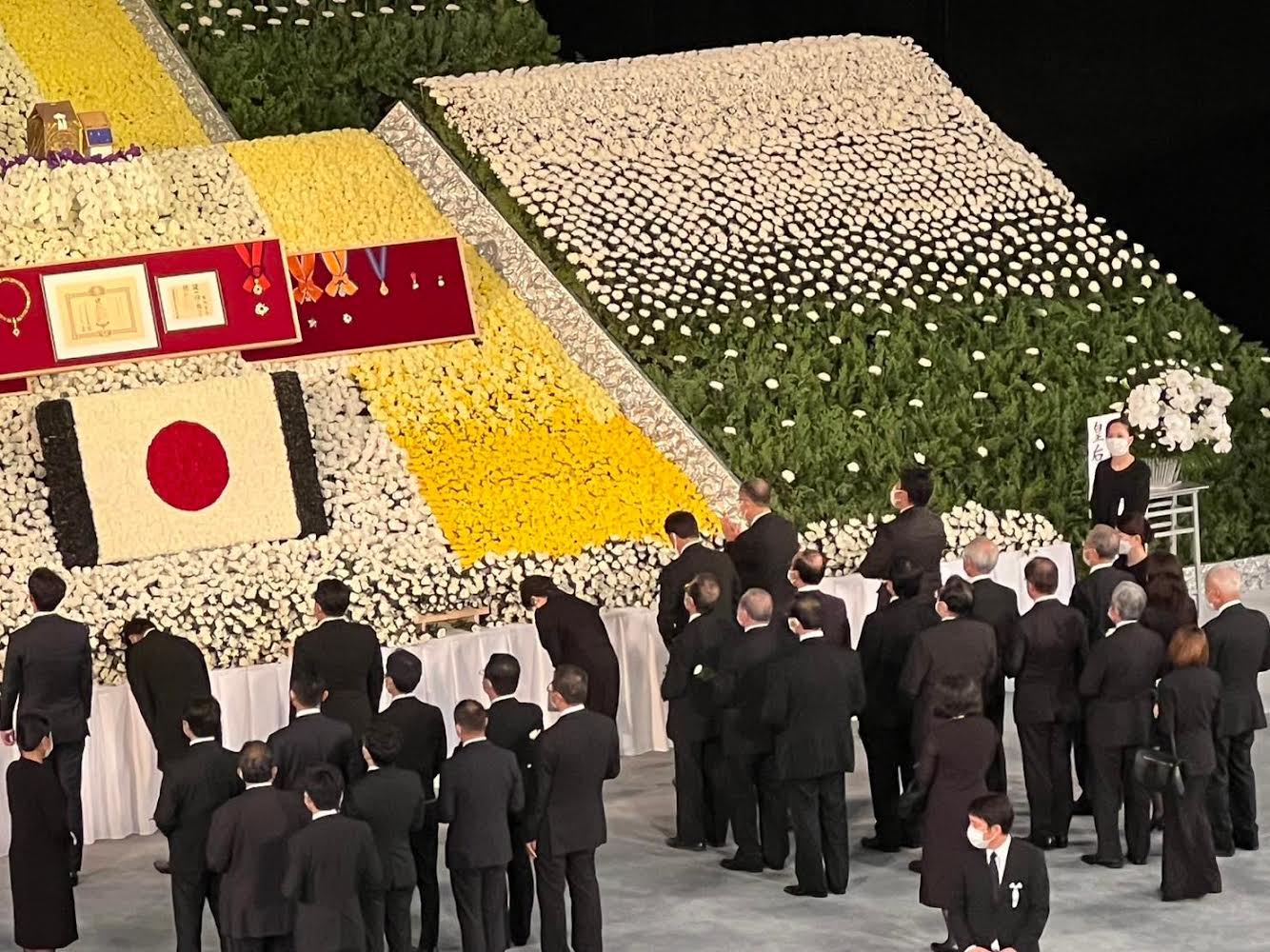
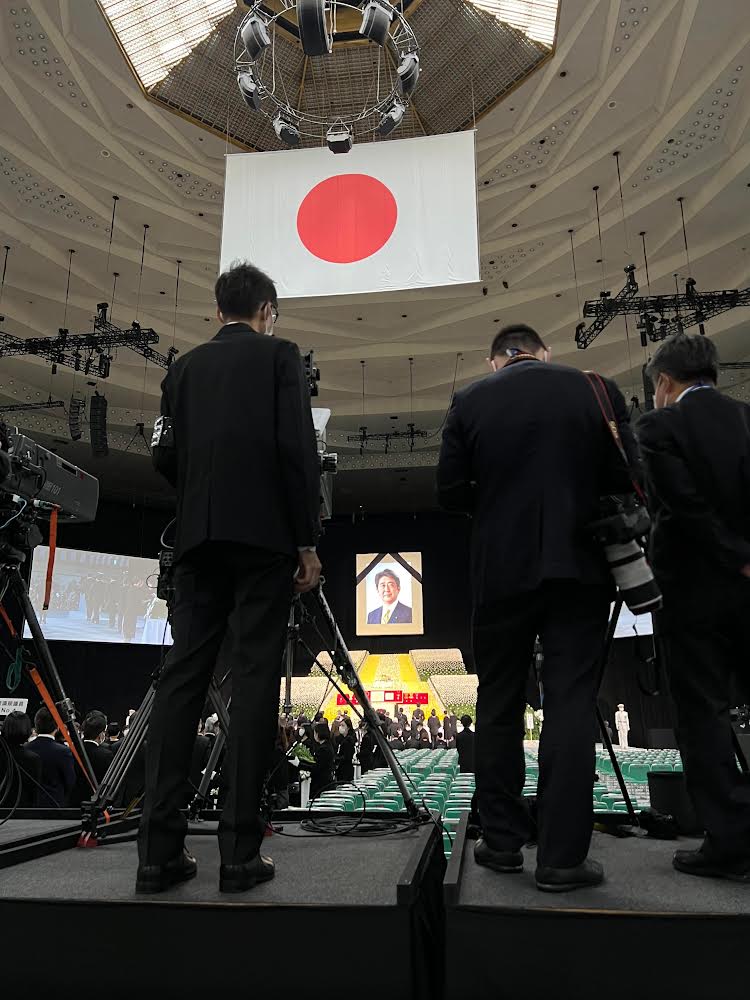
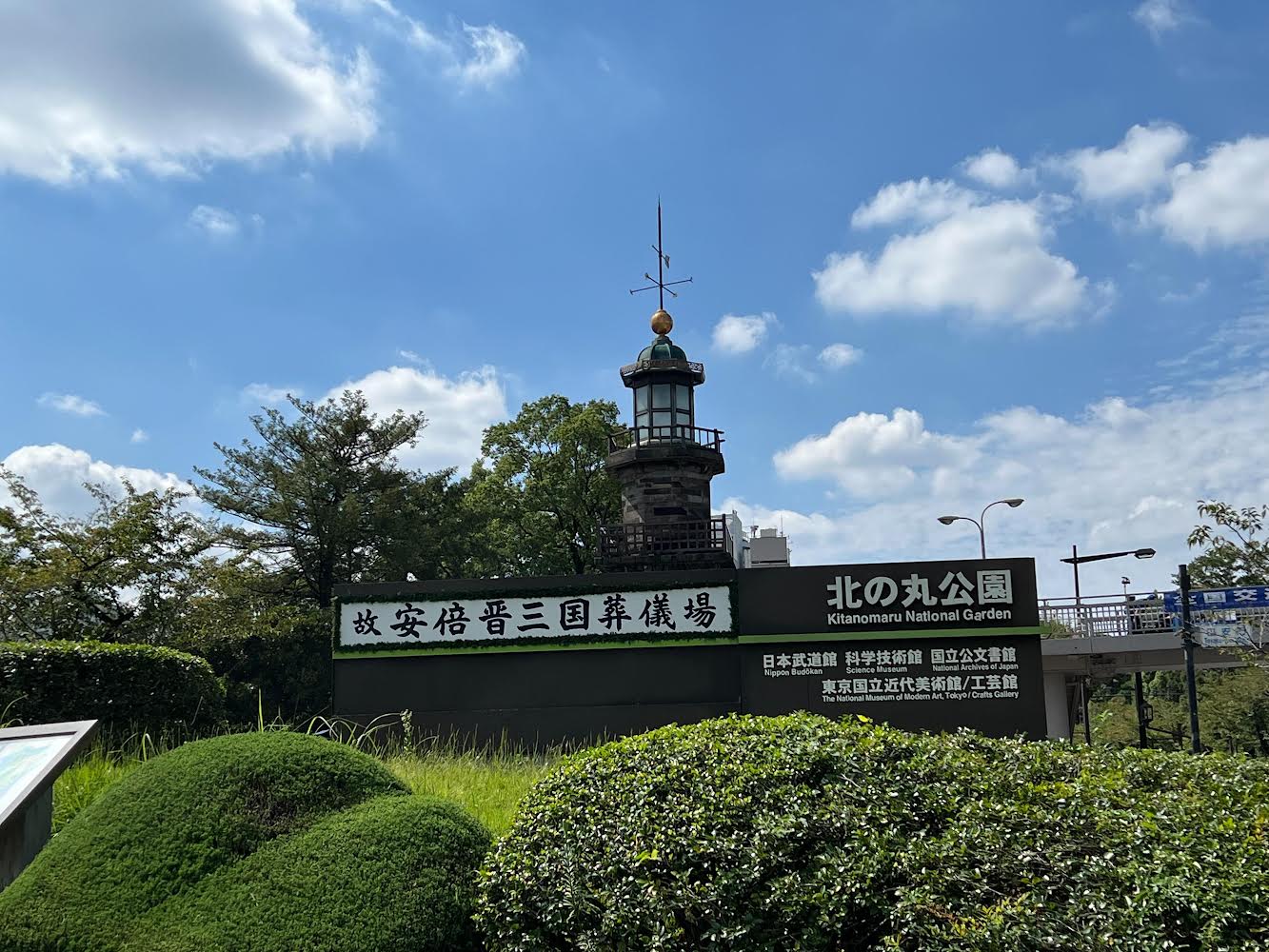
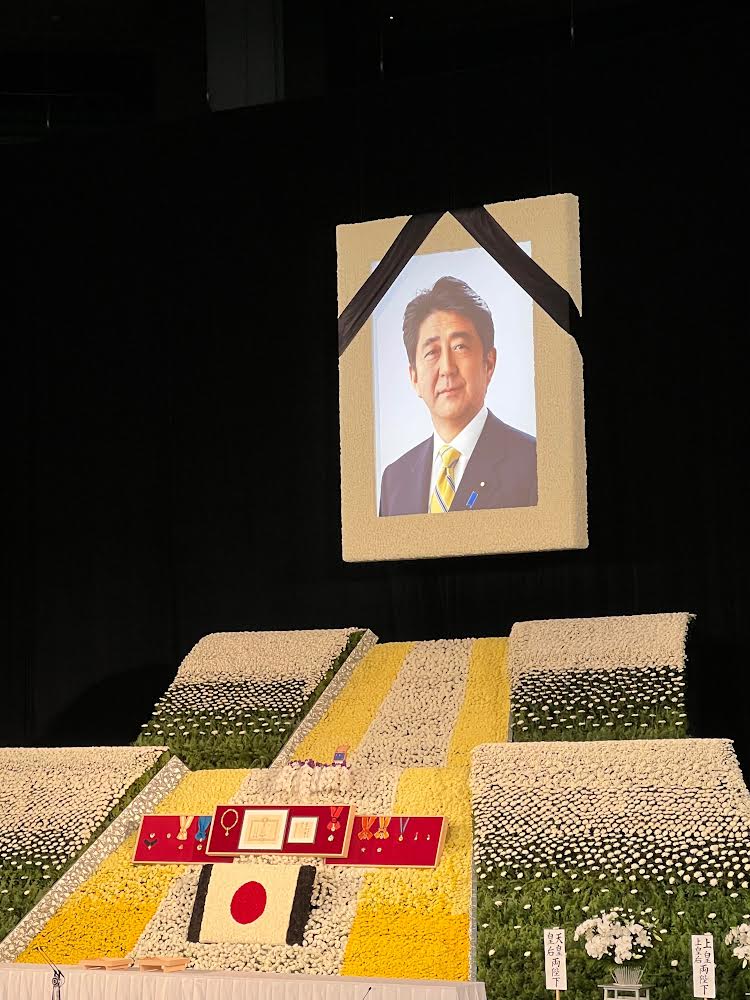
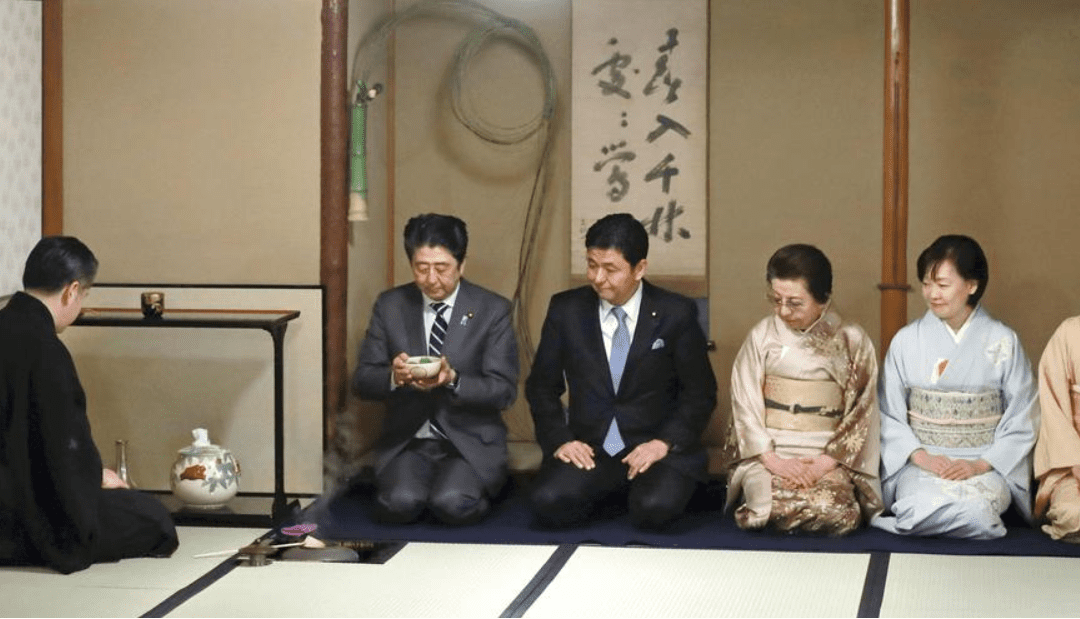
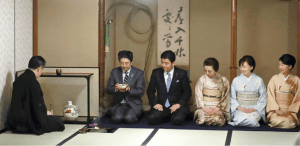
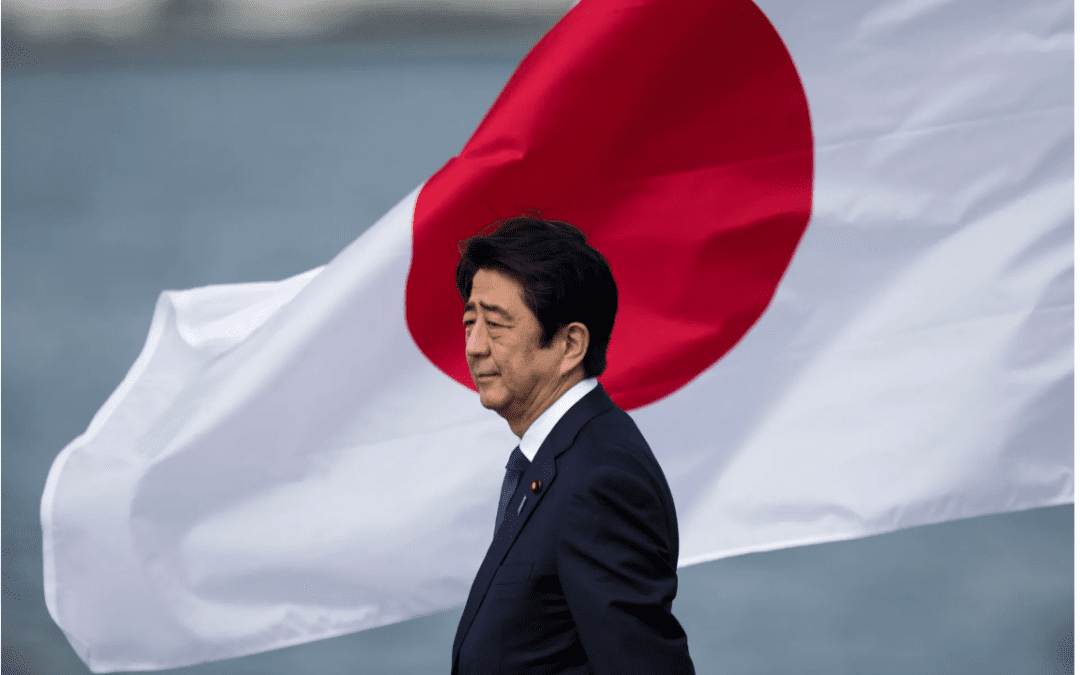
Shinzo Abe (1954-2022) was Japan’s longest-serving prime minister. With significant contributions to his nation, Asia, and the world during his two separate terms from 2006 to 2007 and from 2012 to 2020, Shinzo Abe was a renowned nationalist and celebrated internationalist. His assassination on July 8, 2022, came as a shock not only to the Japanese but also people all around the world.
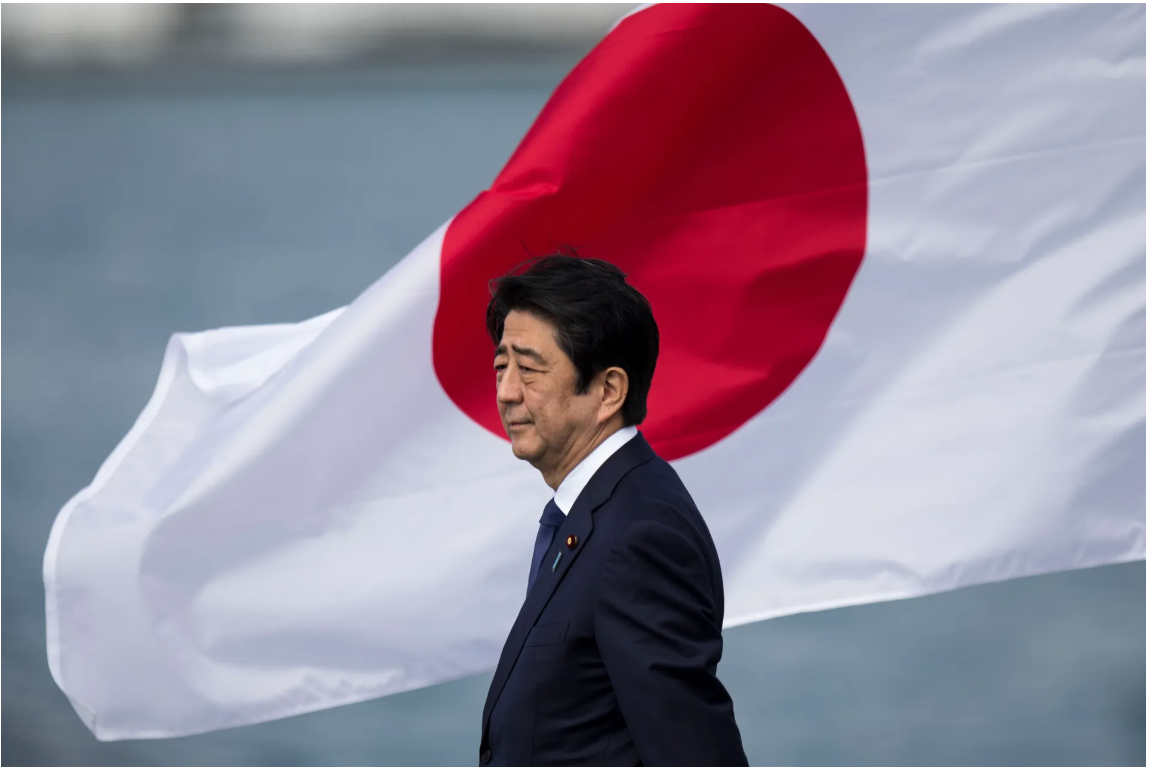
Photo by Kent Nishimura (Getty Images, 2016)
Regarded as the architect of the Indo-Pacific legacy for his valiant efforts in promoting a “broader Asia” in his monumental speech the “Confluence of the Two Seas”[1] in 2007, Shinzo Abe called for a new security architecture across the region, spanning a vast expanse of the western and southern Pacific Ocean extending to the Indian Oceans, hence incorporating the United States, Australia, and India into a network of maritime democracies along with Japan and other Asian nations.
Open and transparent, this network will allow people, goods, capital, and knowledge to flow freely.
Initiated by Abe, the Quadrilateral Security Dialogue, or the Quad was formed in 2007 between Australia, India, Japan, and the United States for strategic maritime security dialogue in response to China’s increased economic and military power.[2]
Abe’s administration advocated a value-oriented diplomacy policy, which placed emphasis on universal values (freedom, democracy, human rights, the rule of law, and the market economy) to form a rich and stable region stretching to the outer rim of the Eurasian continent to achieve an “Arc of Freedom and Prosperity”.[3] These values later became an underlying component of the framework and remained the spirit of the Quad that continues to advance today.
In 2010, the Quad temporarily ceased due to the withdrawal of Australia but was resurrected in 2017 after Shinzo Abe returned to office in 2012 and wasted no time in espousing “Asia’s Democratic Security Diamond”, an extension of his 2007 vision of the “Confluence of the Two Seas”.[4]
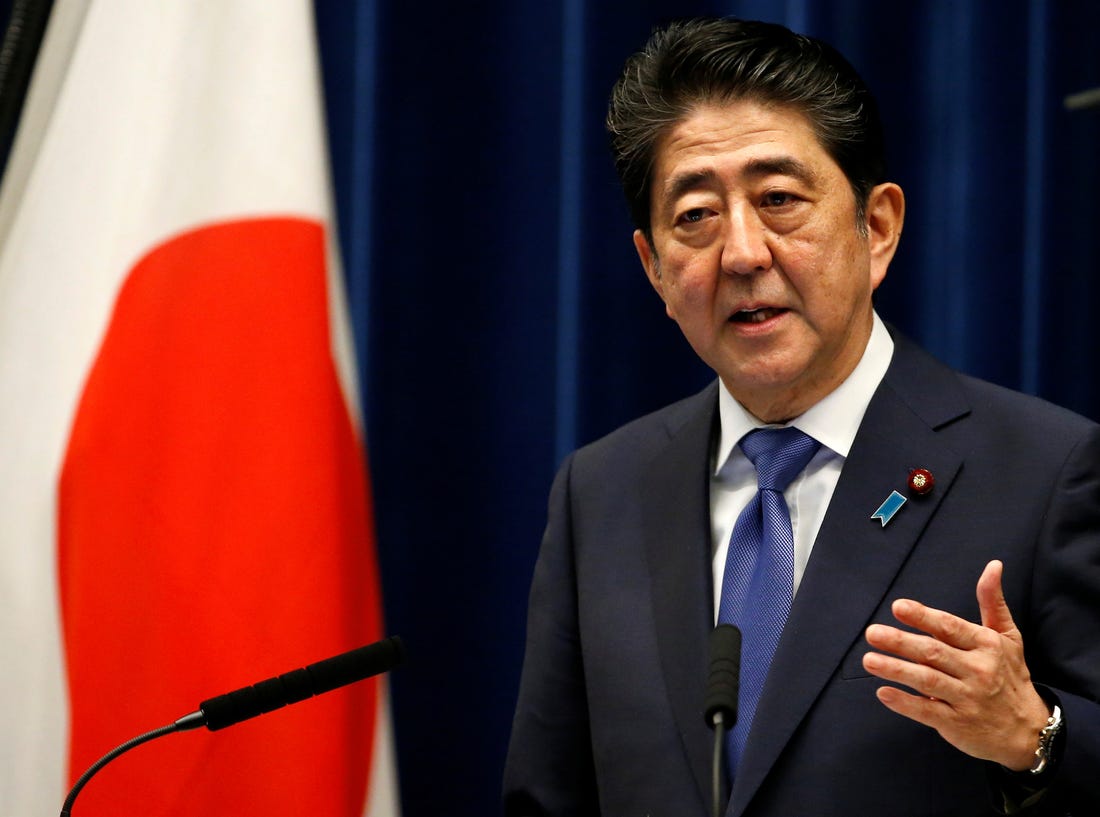
The significance of Abe’s legacy lies not only in the security arena but also in the language itself: “a free and open Indo-Pacific” – a simple phrase with a liberating effect on how people view Asia.
Since its coining, the catchphrase has been seen in various US policy and military statements, with the Pentagon’s Pacific Command headquarters in Hawaii changing its name to Indo-Pacific Command in 2018, or US Secretary of State Antony Blinken delivering a speech titled “A Free and Open Indo-Pacific” in Jakarta, Indonesia, in December 2021.[5]
Such an epochal shift in perspective also allowed an influx of opportunities to flow into the region via economic links, notably the Trans-Pacific Partnership Agreement (TPP). Despite the United States’ sudden withdrawal when Donald Trump came to power in 2017, Abe’s unwavering support helped hold together the trade agreement between 11 Pacific Rim countries.[6]
Shinzo Abe in many ways envisioned and led the region to become an economic and security architecture between the two seas.
Coming to power for his second tenure in 2012, Shinzo Abe’s government put in a place a comprehensive policy package called “Abenomics” to revitalize the Japanese economy after two decades of deflation. The program encompassed “three arrows”: (i) aggressive monetary policy, (ii) flexible fiscal policy, and (iii) growth strategy.[7]
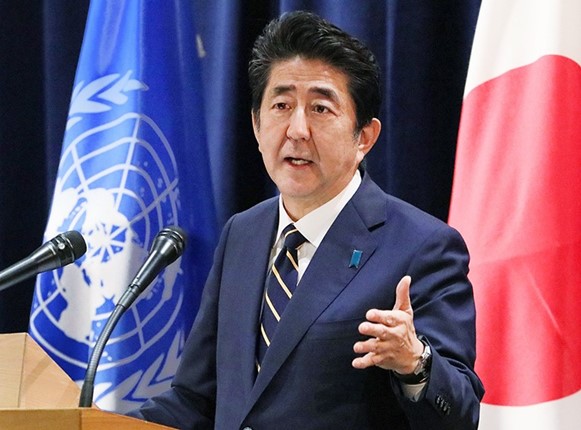
The implementation of Abenomics saw immediate effects on the Japanese foreign exchange and markets, successfully weakening the Japanese yen and increasing stock prices.[8] The consumer price index (all items) rose from negative to 1.7% in May 2014 and experienced ups and downs in the following years before revisiting the negative territory toward the end of the Abe administration, partially wounded by the COVID-19 pandemic.[9]
The average unemployment rate following Abenomics implementation dropped to 3.1%, the lowest level among the periods defined by prime minister tenures since 1998.[10]
Though falling short of its main ambition of 2% inflation and boosting Japan’s growth rate, Abenomics was considered successful in lifting the economy out of deflation and managing aggregate demand. By encouraging more women, seniors, and immigrants to participate in the labor market, the Abe administration also contributed to overcoming the country’s rapidly aging workforce.
One of the overarching goals of Shinzo Abe’s tenure as Prime Minister was to make a “Proactive Contribution to Peace” based on the principles of international cooperation, of which global health is among the most important elements in the concept of human security.[11]
Shinzo Abe understood that improving health is not only the right thing to do—it also makes the world safer and more prosperous. His death is a tragic loss, but the leading role in global health that he helped establish for Japan will endure.[12]
During his tenure, Abe showed determination in tackling global healthcare challenges and encouraged world leaders to adopt global health as a top agenda item to be discussed and focused on. As the host, Abe set universal health coverage as a major pillar of both the G7 Ise-Shima Summit and TICAD VI in 2016[13] and continued to lead discussions on global health at the United Nations and TICAD VII in 2019[14].
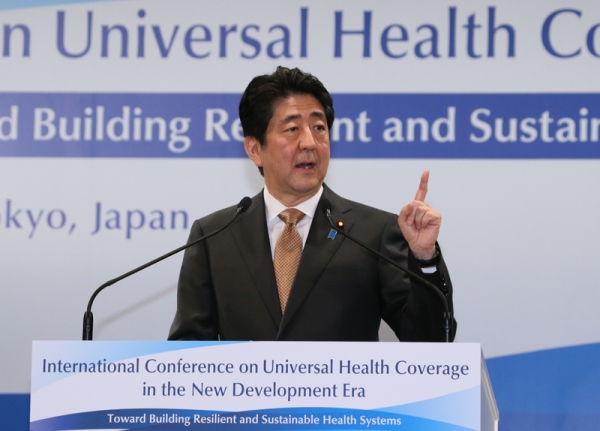
“Photograph of the Prime Minister giving a speech”. Japan, December 16, 2015. From Prime Minister of Japan and His Cabinet: Opening Session of International Conference on Universal Health Coverage in the New Development Era.
Under his leadership, Japan’s government doubled its support for various lifesaving projects such as the Global Health Security Agenda (GHSA) to strengthen each country’s capacities to fight against infectious diseases or Universal Health Coverage to provide health services to every individual at an affordable cost.[15] Abe believed that “resilient, sustainable, and inclusive” health systems are keys to human security and called on relevant international organizations and donors to strengthen their collaboration.[16]
17Shinzo Abe recognized cybersecurity as a critical issue to the national security and Japan’s crisis management in response to the rising prevalence of cyberspace and its looming risks. Under his premiership, the Japanese Diet passed the “Cyber Security Basic Law” in 2014 to fundamentally strengthen Japan’s cybersecurity[17] and the Cabinet approved the “Cybersecurity Strategy” in 2015 to outline national approach to cybersecurity for the next three years.[18]
Abe and his government’s commitment to “take all possible measures in regard to Japan’s cyber security”[19] at the 2020 Tokyo Olympic and Paralympic Games successfully avoided around 450 million cyberattack attempts against the official website and organizing committee’s system.[20]
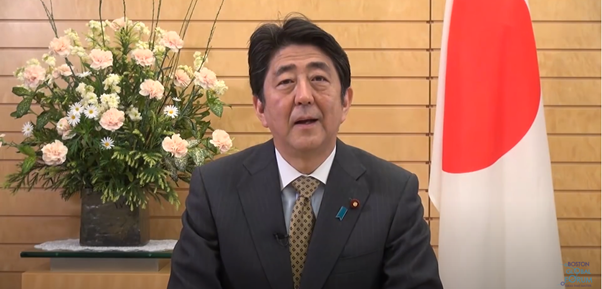
Shinzo Abe’s message to the Boston Global Forum’s Global Cybersecurity Day First Event. December 12, 2015. From: Boston Global Forum
Japan will continue to cooperate closely with the US and other partners in the International community, reliably safeguard our nation’s important information and property while playing a leading role in achieving the peace and stability of the international community.[21]
The Japanese government also contributed to the BGF – G7 Summit 2016 Initiative by the Boston Global Forum on the topic of Strategies for Combating Cyberterrorism. In this regard, Shinzo Abe was the first world leader to receive World Leader for Peace and Security Award by the Boston Global Forum in 2015 in honor of his extensive efforts to work with international communities to reinforce cybersecurity.
Under Abe’s premiership, the Japanese government founded an international conference called World Assembly for Women (WAW!) which has been held every year since 2014. Shinzo Abe envisioned and promoted “A Society where Women Shine” as his government enacted new laws to enhance women’s participation and advancement in society, create a society where both women and men share responsibility for work, household chores, and childcare, and promote high-quality education for women and girls.[22]
Abenomics is Womenomics.[23]
At the WAW! 2017 conference, Abe once again proved his position as an outstanding global leader as he appeared on the stage and introduced measures for women’s empowerment both in Japan and overseas.[24]
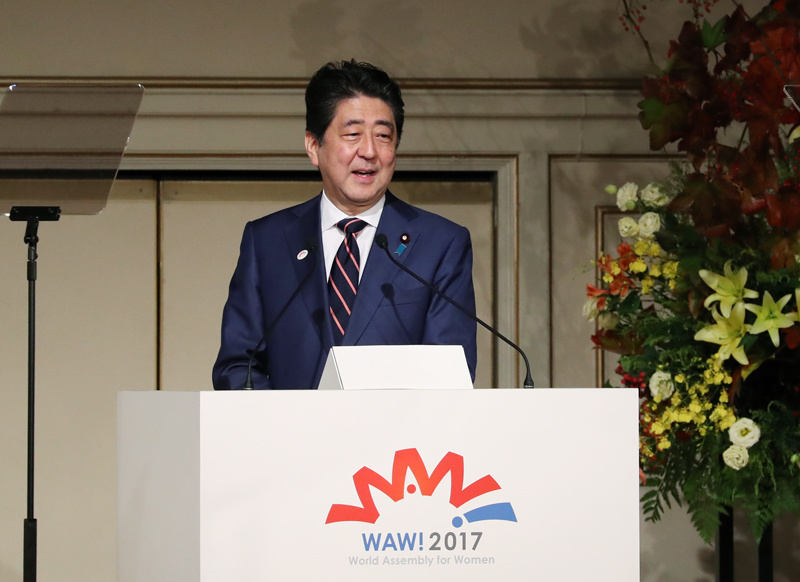
“Photograph of Prime Minister Abe giving remarks”. Japan, November 3, 2017. From Prime Minister of Japan and His Cabinet: The World Assembly for Women (WAW! 2017).
We will expand throughout the world the network for enhancing women’s participation and advancement in society. When women around the world rise up, we will surely be able to resolve poverty and various other issues facing the world.[25]
The enduring impacts of the legacies are testaments to Shinzo Abe’s contribution and devotion to peace and security on regional and global level. As prime minister, Abe stepped up as a regional leader and worked tirelessly to transform the way people view Asia and propel Indo Pacific to become a secure and prosperous region. He further took international efforts to lead and address pressing global issues such as universal healthcare and women impowerment.
His tragic death had sorrow dawn upon Japan and the world alike. Nonetheless, Shinzo Abe and his legacies are to be remembered for a long time.
1 “Confluence of the Two Seas Speech by HE Mr Shinzo Abe, Prime Minister of Japan at the Parliament of the Republic of India”, Ministry of Foreign Affairs of Japan, August 22, 2007, https://www.mofa.go.jp/region/asia-paci/pmv0708/speech-2.html.
2 Teesta Prakash, “Abe Shinzo: the Quad stands as his Indo-Pacific legacy”, The Lowy Institute, July 9, 2022, https://www.lowyinstitute.org/the-interpreter/abe-shinzo-quad-stands-his-indo-pacific-legacy.
3 “Speech by Mr. Taro Aso, Minister for Foreign Affairs on the Occasion of the Japan Institute of International Affairs Seminar “Arc of Freedom and Prosperity: Japan’s Expanding Diplomatic Horizons””, Ministry of Foreign Affairs of Japan, November 30, 2006, https://www.mofa.go.jp/announce/fm/aso/speech0611.html.
4 Tunchinmang Langel, “The Indo-Pacific Legacy of Abe Shinzo”, National Maritime Foundation, July 16, 2022, https://maritimeindia.org/the-indo-pacific-legacy-of-abe-shinzo/.
5 Brad Lendon and Andrew Raine, “’A free and open Indo-Pacific’: With a single phrase, Shinzo Abe changed America’s view of Asia and China”, CNN online, July 21, 2022, https://edition.cnn.com/2022/07/20/asia/shinzo-abe-legacy-china-japan-indo-pacific-intl-hnk/index.html.
6 Motoko Rich, “TPP, the Trade Deal Trump Killed, Is Back in Talks Without U.S.”, The New York Times, July 14, 2022, https://www.nytimes.com/2017/07/14/business/trans-pacific-partnership-trade-japan-china-globalization.html.
7 “Abenomics”, The Government of Japan, updated June 2020, https://www.japan.go.jp/abenomics/index.html
8 Kaya Keiichi, “Abenomics: The Reasons It Fell Short as Economic Policy”, NIPPON, January 19, 2022, https://www.nippon.com/en/japan-topics/g01236/#:~:text=Viewed%20from%20the%20discipline%20of,not%20change%20the%20real%20economy.
9 Ibid.
10 Takatoshi Ito, “An Assessment of Abenomics: Evolution and Achievements”, Wiley Online Library, July 18, 2021, https://doi.org/10.1111/aepr.12353.
11 “Statement by Prime Minister Shinzo Abe at International Conference on Universal Health Coverage in the New Development Era: Toward Building Resilient and Sustainable Health Systems”, Prime Minister of Japan and His Cabinet, December 16, 2015, https://japan.kantei.go.jp/97_abe/statement/201512/1215006_9934.html.
12 Bill Gates, “Shinzo Abe’s legacy of saving lives”, GatesNotes, August 09, 2022, https://www.gatesnotes.com/About-Bill-Gates/Remembering-Shinzo-Abe.
13 “Statement by Prime Minister Shinzo Abe at International Conference on Universal Health Coverage in the New Development Era: Toward Building Resilient and Sustainable Health Systems”, Prime Minister of Japan and His Cabinet, December 16, 2015, https://japan.kantei.go.jp/97_abe/statement/201512/1215006_9934.html.
14 “Prime Minister Shinzo Abe’s participation in the UN High-Level Meeting on Universal Health Coverage (UHC)”, Ministry of Foreign Affairs of Japan, September 23, 2019, https://www.mofa.go.jp/ic/ghp/page6e_000218.html.
15 “Statement by Prime Minister Shinzo Abe at International Conference on Universal Health Coverage in the New Development Era: Toward Building Resilient and Sustainable Health Systems”, Prime Minister of Japan and His Cabinet, December 16, 2015, https://japan.kantei.go.jp/97_abe/statement/201512/1215006_9934.html.
16 Ibid.
17 “Cyber Security Strategy Headquarters”, Prime Minister of Japan and His Cabinet, February 10, 2015, https://japan.kantei.go.jp/97_abe/actions/201502/10article4.html.
18 Mihoko Matsubara, “Japan’s New Cybersecurity Strategy: Security Without Thwarting Economic Growth”, Council on Foreign Relations, November 2, 2015, https://www.cfr.org/blog/japans-new-cybersecurity-strategy-security-without-thwarting-economic-growth.
19 “Cyber Security Strategy Headquarters”, Prime Minister of Japan and His Cabinet, February 10, 2015, https://japan.kantei.go.jp/97_abe/actions/201502/10article4.html.
20 “About 450M cyberattacks prevented during Tokyo Olympics”, Anadolu Agency, June 10, 2021, https://www.aa.com.tr/en/asia-pacific/about-450m-cyberattacks-prevented-during-tokyo-olympics/2383969.
21 Shinzo Abe, “Prime Minister Abe is honored World Leader in Cybersecurity Award!”, Boston Global Forum, December 12, 2015, the America-Japan Society, Tokyo, Video, 2:12, https://bostonglobalforum.org/world-leaders-in-aiws-award-updates/prime-minister-shinzo-abes-award-acceptance-speech-and-message-to-the-global-cybersecurity-day/.
22 “Creating “A Society Where Women Shine””, Ministry of Foreign Affairs of Japan, October 22, 2015, https://www.gender.go.jp/international/int_kaigi/int_acw3/pdf/contry_presentation_japan_07.pdf.
23 “The World Assembly for Women in Tokyo: WAW! 2015”, Embassy of Japan in the United States of America, October 2015, https://www.us.emb-japan.go.jp/files/000105035.pdf.
24 Hiroshi Sakurai, “World Assembly for Women: WAW! 2017”, Public Relations Office of Government of Japan, accessed September 20, 2022, https://www.gov-online.go.jp/eng/publicity/book/hlj/html/201712/201712_02_en.html.
25 Ibid.
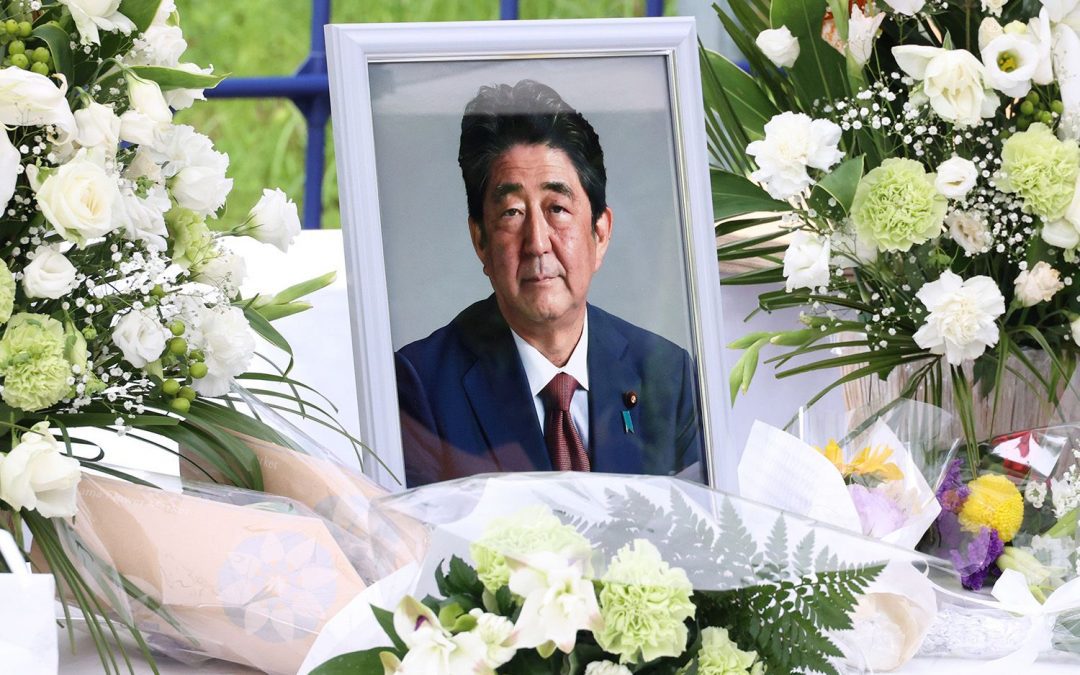
Former Japanese PM Shinzo Abe’s state funeral is confirmed to be held in Tokyo on September 27, 2022 with an expected attendance of 6,000 guests including local and foreign dignitaries.
World leaders who have confirmed their attendance include US Vice President Kamala Harris, and Australian PM Anthony Albanese and his delegation. Three former Australian leaders John Howard, Tony Abbott, and Malcolm Turnbull, who had all worked with Abe and his premiership from 2006 to 2007 and from 2012 to 2020, will join as part of Australia’s official delegation.
Singaporean Prime Minister Lee Hsien Loong will also attend the late Abe’s state funeral.
The Taiwanese foreign ministry is reportedly in discussions about whom it will send as a representative.
At a committee meeting, Prime Minister Fumio Kishida revealed other world leaders who plan to attend the funeral, including Canadian Prime Minister Justin Trudeau, Indian Prime Minister Narendra Modi, Vietnamese President Nguyen Xuan Phuc, and European Council President Charles Michel.
The assassination of former Japanese Prime Minister Shinzo Abe on July 8, 2022 has generated approximately 1,700 messages of condolence messages from 259 countries, regions, and international organizations. The attendance of prominent world leaders at his state funeral further underscores the long-lasting impact of Japan’s longest-serving former prime minister on the region and the world.
The Shinzo Abe Initiative for Peace and Security was established by the Boston Global Forum, where the late Shinzo Abe participated in numerous events and received the World Leaders Award for Peace and Security in 2015. The Initiative aims not only to honor Abe’s significant contributions and dedication to world peace and security, but also to connect world leaders (leaders of government and businesses), scholars, thinkers, and creators to continue his legacy and work toward world peace, security, and prosperity.
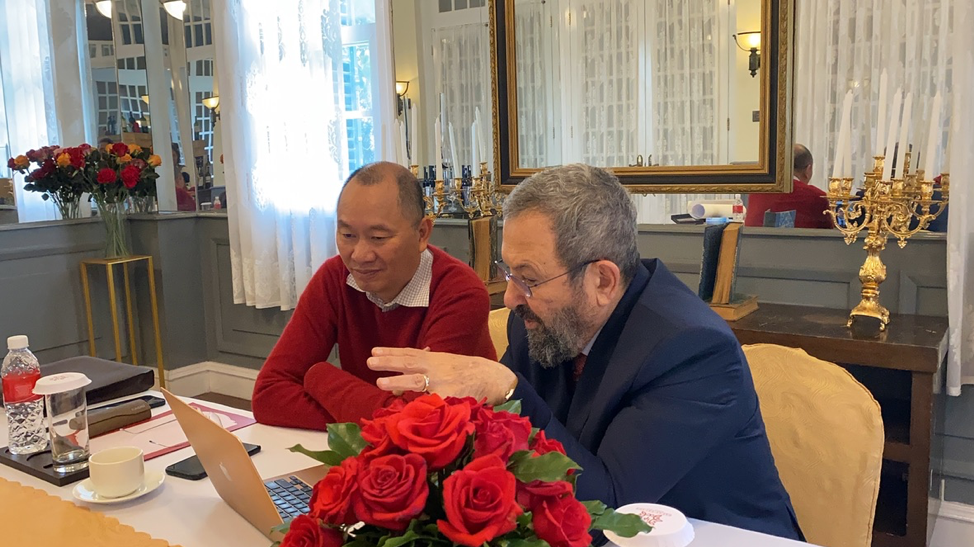
On August 10th, 2022, the Boston Global Forum held its high level dialogue at Dalat Palace Heritage Hotel, Vietnam to discuss the Shinzo Abe Initiative for Peace and Security, hosted by Nguyen Anh Tuan, CEO of Boston Global Forum and Founder of the Initiative, with the participation of Former Israeli Prime Minister Ehud Barak and Former Japanese State Minister of Defense Yasuhide Nakayama.
Former Israeli Prime Minister Ehud Barak shared his views on the vision and mission of the Initiative, believing that it serves as a living monument for the late Shinzo Abe while emphasizing the need to assess the Initiative beyond its concepts and adopt practical methods to realize its goals.
Former Japanese State Minister of Defense and Coordinator of the Initiative in Japan, Yasuhide Nakayama provided insights into ongoing conflicts in certain regions and expresses his dedication to work toward solutions and continue Shinzo Abe’s legacy in peace and security. He believes that the discussion serves as strong pillars for future development and that the ideas formed and exchanged at the meeting are helpful resources and bases for further discussions on world peace.
CEO Nguyen Anh Tuan reinforced the importance of maintaining a clear vision while taking practical approaches to peace and security issues. He concluded the meeting with great affirmation of commitment as the Boston Global Forum embarks on the Initiative and thanks the guests for their valuable contributions.
The Shinzo Abe Initiative for Peace and Security was established to not only honor Abe’s significant contributions and dedication to world peace and security, but also to connect world leaders (leaders of government and businesses), scholars, thinkers, and creators to continue his legacy and work toward world peace, security, and prosperity.

Former Israeli Prime Minister Ehud Barak, Former Japanese State Minister of Defense Yasuhide Nakayama and CEO of Boston Global Forum Nguyen Anh Tuan discussed the Shinzo Abe Initiative for Peace and Security.